As the severity of the COVID-19 pandemic begins to ease, counseling professionals will find that they are needed more than ever before to help those struggling with addiction.
Devoted to Community Impact
At Carlow University, our Master of Science in Criminology and Criminal Justice empowers you to lead with purpose and serve with integrity. Whether you’re advancing your career or shifting your path, you’ll find a supportive, student-focused environment focused on making a lasting impact. Join a network of changemakers shaping a more just and merciful world.
The program spans one year, with five specializations that are cross-disciplinary, and skills based. All students will complete the core program requirements (totaling 12 credits) and will select from two specialization tracks (each consisting of 9 credits for a total of 18 credits). Specialty tracks include Forensic Psychology, Public Safety, Fraud Investigation, Forensic Accounting, and Cyber Threat Analytics.
Credits required:
30 credits
Cost per credit:
$800/credit
Time to degree:
3 semesters with a fall start
4 semesters with a spring or summer start
Delivery:
Fully Online or On campus
Where Theory Meets Real-World Application
The Carlow MS in Criminology and Criminal Justice offers students a 30-credit graduate degree that can be highly specialized depending on the student’s career interests. The program has four core courses (MCR 700 Advanced Criminological Theory, MCR 701 Justice Policy, PYM 706 Research Methods for the Social Sciences, and PYM 721 Systems of Criminal Justice) that form the foundation on which to build specialization.
Students can match any two of our five dynamic practice tracks to form unique learning experiences relevant to their future careers. Are you interested in developing skills to address financial crimes and money laundering? Complete the specialization tracks in Forensic Accounting and Fraud Investigation. Do you want to understand how psychological assessment and treatment affects police and those who are incarcerated? Complete the specialization tracks in Public Safety and Forensic Psychology. Have you considered entering federal law enforcement and pursuing bad actors on the dark web? Specializations in Cyber Threat Analytics and Forensic Psychology or Fraud Investigation may be your best academic option.
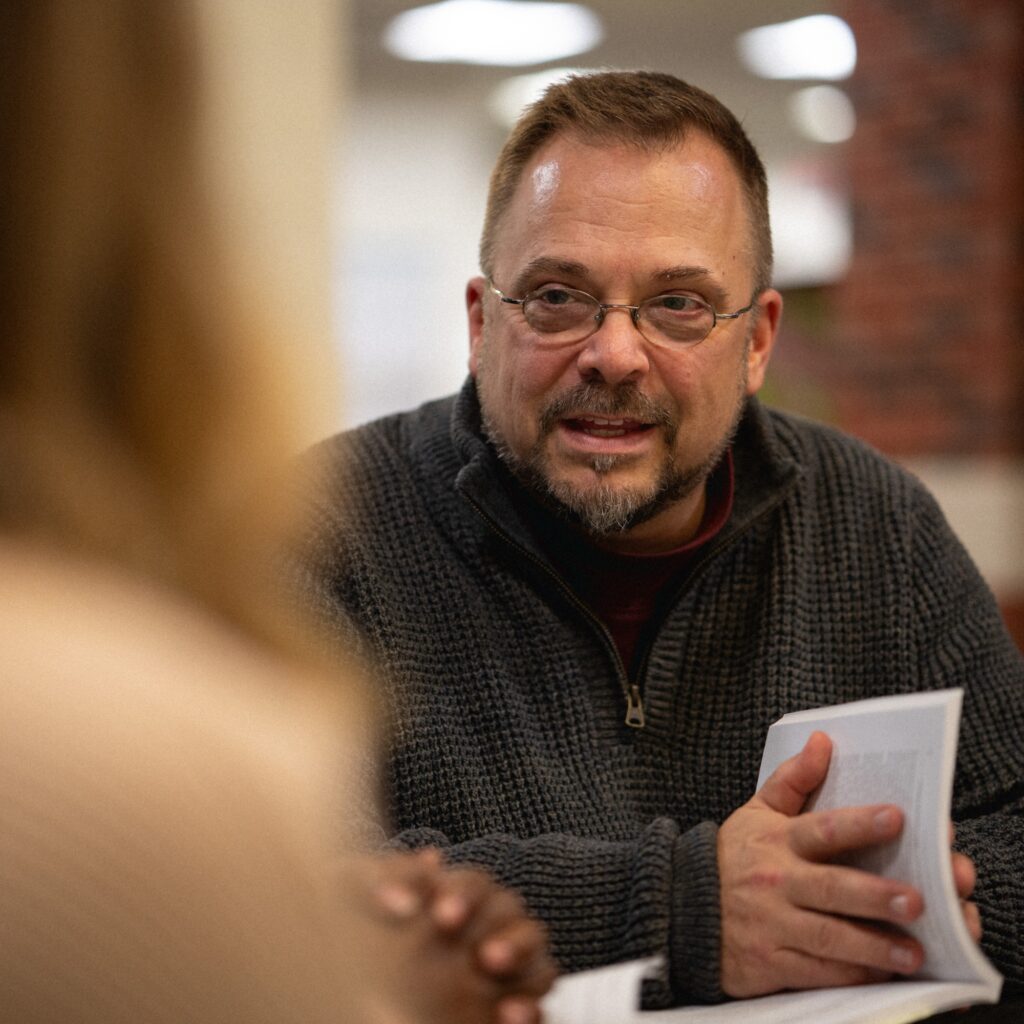
Quick facts
Whatever career path you are considering, the Carlow MS in Criminology and Criminal Justice can help support your training for those next steps. Unique aspects of the program include:
- Five unique specializations that are not commonly offered by competitor programs
- Heavy emphasis on applied skills development
- A potential blend of psychology and criminology options for those exploring both disciplines
- Professors with both research and field experience who not only teach, but engage with their area of specialized practice in the community
Specializations
The Forensic Psychology specialization develops students’ expertise at the juncture of psychology and the legal system, preparing them for roles in forensic, correctional, and clinical settings. Core courses cover competency evaluations, risk assessments, and ethical practice, while exploring criminal behavior’s psychological and social causes. Practical skills in motivational interviewing and offender treatment emphasize real-world application. This foundation prepares graduates to become ethical and effective forensic psychology professionals.
Fraud Investigation
The Fraud Investigation specialization equips students with knowledge and tools to detect, investigate, and prevent financial crimes in various settings. Students study white-collar crime motives and methods, money laundering mechanisms, and legal and investigative strategies. Ethics and prevention courses focus on risk minimization and fostering organizational integrity. This specialization suits those targeting careers in forensic accounting, compliance, corporate investigations, or financial regulation.
Forensic Accounting
The Forensic Accounting specialization prepares students to identify financial misconduct and support legal proceedings through investigative analysis. Foundational courses differentiate forensic from traditional accounting, emphasizing litigation support and fraud detection. Advanced study in financial statement examination and audit procedures builds skills in spotting red flags and employing controls to prevent fraud. The curriculum readies students for roles in fraud examination, financial forensics, compliance, and investigative accounting.
Public Safety
The Public Safety specialization is tailored for professionals working in high-pressure environments involving mental health, communication, and crisis response, especially first responders. Students learn to identify behavioral and substance-related signs in the field, apply de-escalation communication techniques, and adopt trauma-informed mental health approaches. Emphasis is placed on building trust, safety, and competence in complex situations. This program prepares students for enhanced public safety roles requiring psychological insight and crisis management skills.
Cyber Threat Analytics
The Cyber Threat Analytics specialization prepares students to detect, analyze, and respond to evolving digital threats. Courses on cybercrime cover tactics like hacking and identity theft, while dark web analysis trains safe and effective investigation of illicit online activity. Advanced cyber analysis focuses on using cutting-edge tools to identify patterns and generate actionable intelligence. This specialization is ideal for careers in cybersecurity, digital forensics, intelligence, and cybercrime investigation.
Alternate degree completion options
Online Degree
Gain the knowledge you need at your convenience with our online degree option. When applying, indicate your interest in the online option.
Accelerated
Fast track your way to a master’s by taking graduate courses as an undergraduate student. Course credits count towards both degrees. Apply for this option after your sophomore year.


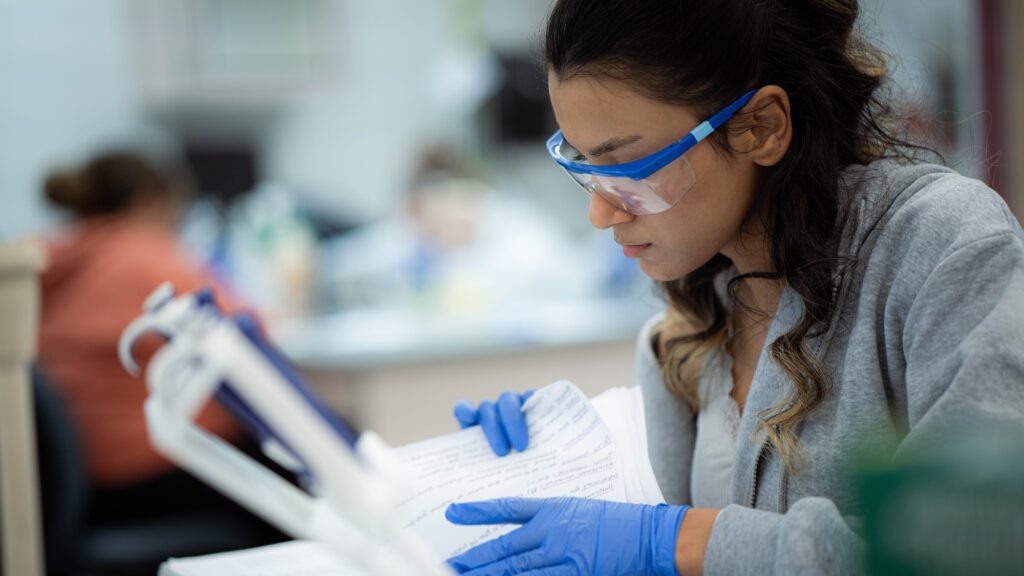
Career opportunities for Criminology graduates
Jobs you might consider with a master’s in criminology & criminal justice are federal law enforcement, reentry specialist, forensic analyst, cyber threat analyst, loss prevention specialist, criminal justice policy advisor, criminal justice advocacy coordinator, criminology research analyst, litigation support specialist, corporate compliance officer, or probation officer (advanced roles or supervisors).
Accreditation
The Carlow MCRM program does not have any required accrediting bodies.
Admission requirements and application process
- Submit an application for admission. It is free to apply.
- Request that official transcripts from all current and previous institutions you’ve attended are sent directly to the Carlow University Office of Admissions.
Apply
anytime
Start terms:
Fall, Spring & Summer
Criminology faculty
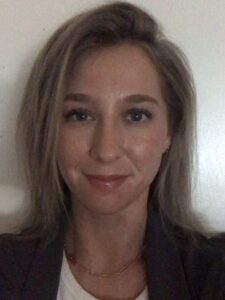
Alexa Piacquadio, PhD Assistant Professor of Undergraduate Psychology and Master of Arts in Psychology
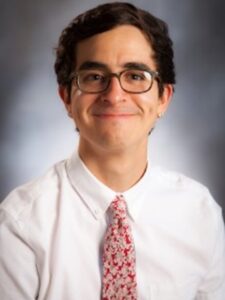
Jonathan Uhl, PhD Assistant Professor of Criminology, Program Director of Undergraduate Criminology
Contact Admissions
If you are interested in this major, our Admissions team is available to help you with the next steps, including scheduling an on-campus visit or attending an upcoming event.
Build potential and access to full participation with an MS in Occupational Therapy
Built on the Mercy principles of hospitality, discovery, sacredness of creation, and service, Carlow’s Master of Science in Occupational Therapy (MSOT) will help you develop deep roots in humanistic theory, emphasizing a balance of physical, emotional, and social health and wellness. Our accredited OT program is intentionally integrated with interprofessional experiences and faculty that help prepare you for your future as an occupational therapist.
Upon graduation, you will be prepared to transform the future of practice using an occupational justice-informed approach to health and well-being.
Quick facts
- Learn interprofessionally (alongside other aspiring healthcare professionals)
- Become a powerful citizen of justice in society and healthcare
- Be eligible to sit for the OT national certification exam
▸ Read about the Carlow difference [pdf]
Lock in your tuition!
If you plan to start your occupational therapy (MSOT, OTD) degree in Fall 2026, you are eligible to lock in your per-credit tuition rate for your whole program duration as long as you are continually enrolled in the program.
Credits required:
73 credits
Cost per credit:
$950/credit
Time to degree:
As few as 6 semesters
Delivery:
On campus
Master’s in occupational therapy curriculum
Throughout the curriculum, we have integrated interprofessional experiences into course-based learning activities and community-based experiences. Shared spaces and faculty create daily interprofessional interactions, while critical thinking and ethics courses provide interprofessional discussion and reflection. You will participate in fieldwork experiences (Level I & II) that allow you to bridge your knowledge between classroom and practice using an occupational justice-informed approach.
- Level I fieldwork (3 required): discover and develop your professional identity, apply your classroom knowledge to your experiences, and complete experience on campus and in the surrounding Pittsburgh, Pa community
- Level II fieldwork (2, 12-week required): apply clinical skills in a variety of supervised practice settings, complete experience in traditional or innovative practice settings, and focus on environment and community concepts, and interprofessional and evidence-based practice

▸ View or download our program’s mission and outcomes [pdf]
The OT curriculum is taught through a whole-health perspective that works to develop your whole person for innovative practice in healthcare, dedicated to optimizing health and well-being as a path to occupational justice.
Career opportunities for Occupational Therapists
Occupational therapists, as defined by the American Occupational Therapy Association, are skilled health care professionals who use research and scientific evidence to ensure their interventions are effective. With strong knowledge of a person’s psychological, physical, emotional, and social makeup, occupational therapy practitioners can evaluate how your condition (or risk for one) is affecting your body and mind, using a holistic perspective.
Ranked one of the best jobs by U.S. News & World Report, OT is slated to grow 14% over the next 10 years (U.S. Bureau of Labor Statistics).
▸ View or download the occupational therapy information sheet [pdf]
Admission requirements and application process
At Carlow University, our Occupational Therapy program, uses a holistic admissions process. In this process we evaluate you as a whole person and acknowledge a student’s lived experiences, work, and service initiatives. These areas are specifically given credit during your application process. We look forward to meeting you and guiding you throughout the process.
Applications are open on the Occupational Therapy Centralized Application System (OTCAS).
▸ View the full list of admissions requirements and application process.
Early assurance (conditional admission) for High School students to apply: View our helpful fact sheet [pdf] that offers guidance on the process and requirements.
Apply now!
Application deadline: June 20
Priority deadline: December 1
Start term:
Fall
Occupational Therapy faculty
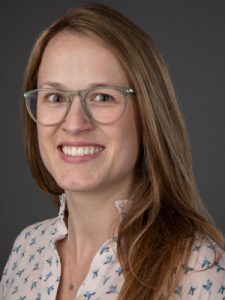
Blythe Westendorf, OTD, MS, OTR/L Assistant Professor

Alyssa Kuster, OTD, OTR/L Field Coordinator/Assistant Professor

Ashlyn Geubtner Walter, OTD, OTR/L, CPAM Assistant Professor

Emily Santini, OTD, OTR/L, ATP Assistant Professor
Contact Admissions
If you are interested in this graduate program, our Admissions team is available to help you with the next steps, including scheduling an on-campus visit or attending an upcoming event.
Follow us on social media
Accredited Entry-Level Doctoral degree level Occupational Therapy Program
The Carlow University entry-level occupational therapy master’s degree program and entry-level occupational therapy doctoral degree program are FULLY accredited by the Accreditation Council for Occupational Therapy Education (ACOTE) of the American Occupational Therapy Association (AOTA), located at 7501 Wisconsin Avenue, Suite 510E, Bethesda, MD 20814. ACOTE’s telephone number, c/o AOTA, is (301) 652-6611, and its web address is www.acoteonline.org. Graduates of the program will be eligible to sit for the national certification examination for the occupational therapist administered by the National Board for Certification in Occupational Therapy (NBCOT). After successful completion of this exam, the individual will be an Occupational Therapist, Registered (OTR). In addition, all states require licensure in order to practice; however, state licenses are usually based on the results of the NBCOT Certification Examination. Note that a felony conviction may affect a graduate’s ability to sit for the NBCOT certification examination or attain state licensure.
- View or download the Program Goals and Outcomes [pdf]
Program Outcomes
Program outcomes with regard to graduation rates and NBCOT certification exam results are updated and posted yearly. See the results on NBCOT for School Performance Home page.
Carlow University’s Master of Science in Occupational Therapy program admitted the first cohort in Fall of 2022. Carlow offers both entry level MSOT and entry level OTD programs. Our graduation rate is calculated by comparing the total number of students who began the program in either the MSOT or OTD degree program the total number of students who graduated from those programs. We allow students the opportunity to switch degree programs at the start of second semester. There may be some fluctuation in the number of students within each degree. In addition, these numbers may include students who graduated out of sync due to medical or personal leave.
The following table represents final MSOT degree candidates and graduation rates by year:
| Graduation Year | # of students started | Withdrew for non-academic reasons | # of students graduated | Graduation rate* | NBCOT Exam New Grad Pass Rate |
| 2024 | 11 | 2 | 9/9 | 100% | TBD |
| 2025 | 11 | — | — | ||
| 2026 | 11 | — | — | ||
| 3-year Total/Average |
*Graduation rate is minus those who withdrew for reasons other than academic performance.
Program results from the National Board for Certification of Occupational Therapy (NBCOT) can be found online at https://www.nbcot.org/Educators-Folder/SchoolPerformance.
Prepare to work in cardiac surgery with a MS in Cardiovascular Perfusion
Carlow’s MS in Cardiovascular Perfusion will equip you to pursue a career in a much-needed medical specialty. The rigorous science curriculum will give you a thorough education on the cardiovascular system, perfusion, hematology, surgery, pulmonary anatomy, pathology and more.
You will learn to prepare the cardiopulmonary bypass and auxiliary equipment used during surgery, as well as the principles and practices of clinical perfusion management.
You will learn the skills needed to oversee the function of the heart and/or lungs during medical procedures and how to administer heart-stopping drugs, monitor the physiological and metabolic demands of patients, and operate equipment during open-heart surgery.
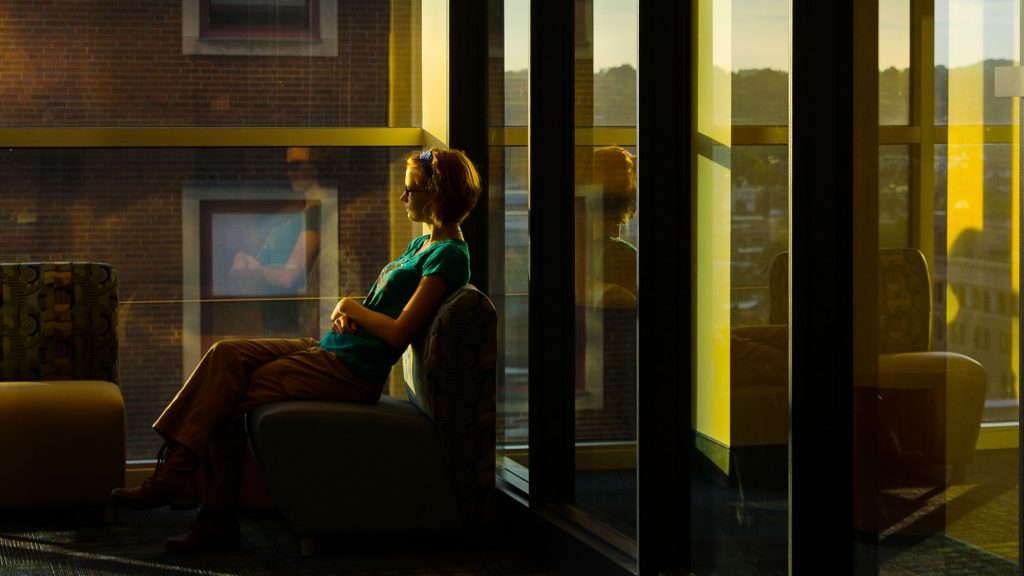
Credits required:
60 credits
Cost per credit:
$1,228/credit
Time to degree:
As few as 20 months
Delivery:
On campus, some online
MS in Cardiovascular Perfusion curriculum
The MS in Cardiovascular Perfusion program is offered in cooperation with the UPMC School of Cardiovascular Perfusion.
Courses cover biological, chemical and physical topics pertaining to the cardiovascular system and include Introduction to Cardiovascular Surgery, Electrophysiology, and Perfusion Procedures — Clinical II/Clinical II Continued.
Quick facts
- Complete 18 months of clinical training at UPMC School of Cardiovascular Perfusion
- Study in one of the oldest cardiovascular perfusion programs in the United States
- Sit for the American Board of Cardiovascular Perfusion (ABCP) Perfusion Basic Science Examination (PBSE) upon graduation
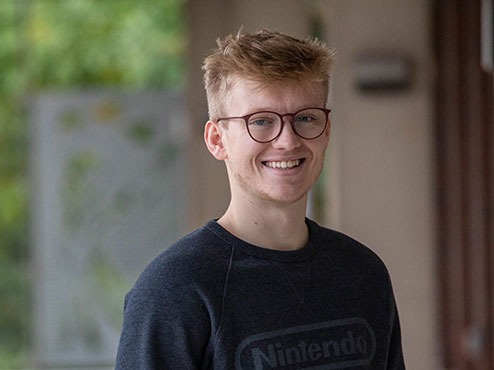
Career opportunities for cardiovascular perfusionists
Most perfusionists work in medical operating rooms. With the MS in Cardiovascular Perfusion, job opportunities include educators and managers within departments of perfusion, or researchers and workers for perfusion equipment manufacturers.
The American Society for Extracorporeal Technology expects hospitals to hire more perfusionists in coming years to compensate for the aging American population.
Admission requirements and application process
You can apply for free online, and must submit the following materials:
- Official transcripts from all degree-granting institutions you have attended
- Personal essay that describes your academic objectives
- Current resume or curriculum vitae
- Proof of job shadowing (include place, date, number of hours, type of procedure observed, printed name and signature of perfusionist)
- Two letters of recommendation that address your leadership potential and ability to succeed in graduate-level work
Apply
anytime
Start term:
Summer
Deadline:
Oct. 1
An undergraduate GPA of 3.5 or higher is required, as is a 3.5 GPA in the sciences (no exceptions).
Students must have the following prerequisites completed in order to be considered for the program:
- General Biology I and II, Anatomy and Physiology I and II, General Chemistry I and II, Organic Chemistry I and II, Physics I and II, Microbiology, Pharmacology, Calculus and Medical Ethics
Cardiovascular Perfusion faculty
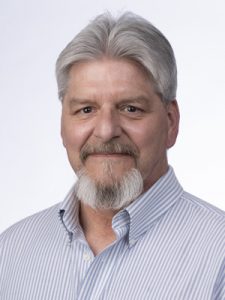
Frank Ammer, PhD Chair, Professor, Biology

Stephen Borecky, PhD Professor, Biology
Contact Admissions
If you are interested in this graduate program, our Admissions team is available to help you with the next steps, including scheduling an on-campus visit or attending an upcoming event.
Learn fraud prevention, fully online: MS in Fraud and Forensics
Acquire in-demand, up-to-date skills in Carlow University’s IACBE-accredited online Master of Science in Fraud and Forensics. One of the first of its kind in the nation, the program is consistently ranked as one of the top forensic accounting programs.

Accreditation
The College of Arts and Sciences Department of Business Management, Accounting, and Ethics at Carlow University has received specialized accreditation for its business programs through the International Accreditation Council for Business Education (IACBE) located at 11374 Strang Line Road in Lenexa, Kansas, USA.
For a list of accredited programs and retention information, see Accreditations.
Develop skills to help people: Master’s in addictions counseling
The CACREP-accredited MS in Professional Counseling: Addictions Counseling Track will train you to work with adults and adolescents experiencing one or more addictions (alcohol, prescription drugs or illicit drugs) in a variety of community settings, including addiction/recovery centers, community mental health centers, hospitals and employee assistance programs.
The program is designed to transition you into a career in professional counseling and prepare you to become a licensed professional counselor (LPC) in the state of Pennsylvania.
Additionally, this degree enables you to earn 180 hours of required addiction-specific coursework toward becoming a PA certified Advanced Alcohol and Drug Counselor (CAADC).

Credits required:
60 credits
Cost per credit:
$1,046/credit
Time to degree:
2.5 – 3.5 years
Delivery:
On campus
Scholarship Information
The Addiction Counseling Workforce Impact Project (AC-WIP) is designed to increase the number of master’s level Professional Counselors who specialize and are certified in Addictions Counseling to serve the citizens of Pennsylvania while increasing the awareness and education of community members and professionals. Students enrolled the MS Professional Counseling degree program are eligible for up to $27,600 in scholarship funding and $4,400 in stipends.
AC-WIP Students will participate in:
- Addiction-Related Trainings
- Trainings for Community Members in Urban and Rural Communities
- NAADAC Certificate Program
- AC-WIP Addiction Counseling Symposium
- Additional funding available for professional memberships and NCE exam
For any questions,
Contact: mpc@carlow.edu
Addictions Counseling Track Curriculum
The 60-credit M.S. degree in Professional Counseling consists of 51 credits of core courses, 9 credits of Addictions Counseling electives, and 700+ clinical hours in Addictions Counseling.
PRC739 – Substance Abuse Counseling Theories & Interventions
PRC 741 – The Biological Bases of Alcohol & Other Drug Addiction
PRC 743 – Co-Occurring Disorders: Counseling Clients with Substance Abuse & Psychiatric Disorders
Post-Master’s Alcohol & Drug Counseling Certificate Only
The 12-credit graduate certificate consists of four (4) addiction-specific online courses.
PRC 738 – Introduction to Substance Abuse Counseling
PRC739 – Substance Abuse Counseling Theories & Interventions
PRC 741 – The Biological Bases of Alcohol & Other Drug Addiction
PRC 743 – Co-Occurring Disorders: Counseling Clients with Substance Abuse & Psychiatric Disorders
Courses Descriptions for the Professional Counseling Program
Quick Facts
- 2024 PCA Outstanding Counselor Education Program
- Meet educational requirements for Pennsylvania licensure in professional counseling (LPC), national counselor certification (NCC), and the PA certified Advanced Alcohol and Drug Counselor (CAADC)
- Accumulate 180 hours of addiction-specific coursework needed for Advanced Alcohol and Drug Counselor (CAADC) certification
- Degree program centered around multicultural and social justice
- Scholarships and Graduate Assistantships Available
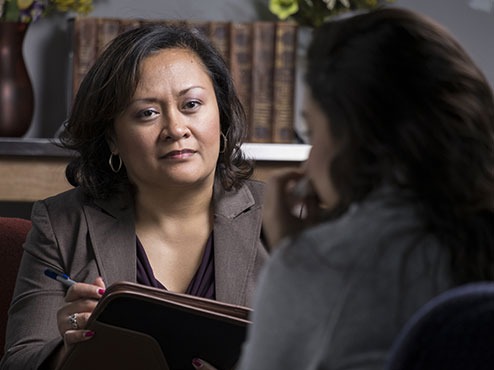
Clinical Fieldwork Experience
“Professional practice, which includes practicum and internship, provides for the application of theory and the development of counseling skills under supervision. These experiences will provide opportunities for students to counsel clients who represent the ethnic and demographic diversity of their community.” – 2016 CACREP Standards: Section 3
During the practicum and internship experience, you will learn and practice, under supervision, a wide array of duties and responsibilities of a professional counselor who is employed at the site placement. These experiences are developmental in nature, as you grow in your competence, skills, and progress from practicum to internship experiences. Over the course of the clinical fieldwork experiences, you will complete a minimum of 700 clinical hours in Addictions Counseling.
Accelerated Masters of Professional Counseling Program
Accelerated
Fast track your way into this master’s program by taking graduate courses as a Carlow undergraduate student. Course credits count toward both degrees. If you are interested in becoming a professional counselor and you are currently a junior or senior, with a minimum of a 3.0 GPA, consider applying for the Accelerated Masters of Professional Counseling Program. You will be able to take up to four (4) graduate level courses which are held on-campus.
Graduate Course
PRC 708 Ethics and Professional Orientation
PRC 701 Human Growth and Lifespan Development
PRC 702 Social and Cultural Foundations
PRC 710 Counseling Theories
Accelerated Program – Undergraduate Prerequisite Courses
1) PY 122 Lifespan
2) PY 203 Personality Theory
3) PY 285 Intro to Counseling
4) Any additional 3 credits UG Psychology Course(s)
Contact your Carlow Faculty Advisor for details.
Career opportunities for Addiction Counselors
Employment of substance abuse and mental health counselors is projected to grow 25% from 2019 to 2029, according to the U.S. Bureau of Labor Statistics.
▸ View the Professional Licensure Disclosure for this program.
Accreditation
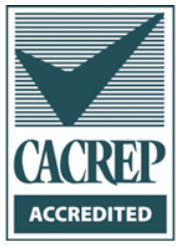
The Council for Accreditation of Counseling and Related Educational Programs (CACREP), a specialized accrediting body recognized by the Council for Higher Education Accreditation (CHEA), has granted accreditation to the following programs in the Department of Psychology, Counseling, and Criminology at Carlow University: Addictions Counseling and Clinical Mental Health Counseling through 2029.
The Professional Counseling Program emphasizes high standards of professional competence. The program is committed to its stated mission through ongoing accreditations by the Middle States Commission on Higher Education and the Council for Accreditation of Counseling and Related Educational Programs (CACREP). We emphasize ethical practice and keep current with state and national standards for certification and licensure for practice in clinical practice environments. In addition, we engage in ongoing program development and refinement based on accrediting bodies’ and licensure boards’ developments and recommendations, as well as sensitivity to licensure requirements, and legal and ethical issues.
Additional program information:
- Learn about the program (program description, annual report, mission statements and program objectives)
- Graduate statistics (NCE pass rates, completion rates and job placement rates)
Admission requirements and application process
Sign up for Professional Counseling Recruitment Events
If you are interested in pursuing a career in Professional Counseling by providing individual and group counseling, you can apply for free online. The graduate program admissions process happens on a rolling basis. Our students have undergraduate degrees in a wide array of disciplines from psychology, human services, social work, or other related majors to majors outside of the helping professions.
Apply by
November 1 or April 1
Start terms:
Fall & Spring
Requirements
- Baccalaureate degree from an accredited institution
- Cumulative GPA of 3.0 or higher. A GPA below 3.0 may be reviewed on a case-by-case basis if there is relevant evidence of work history in the helping field, and/or strong grades in upper-level courses (psychology, human services, social work, or other related majors).
- Evidence of work and/or volunteer experience in a helping field
- Evidence of graduate level writing skills necessary for success in a graduate program
- Ability to perform all the program’s essential standards required to practice as a professional counselor
- Ability to demonstrate professional dispositions and behaviors
Process
- Official transcripts from all degree-granting institutions you have attended. Transcripts must be sent directly to the Carlow from the institution(s).
- A written professional essay describing your professional career goals, strengths, and skills that will contribute to your success in a graduate counseling program. Additionally, discuss how you incorporate social justice and diversity in your work. If your GPAs is below 3.0, also include the factors that impacted your GPA. The essay must demonstrate evidence of graduate level writing skills. (2-page limit).
- Current resume or curriculum vitae highlighting education and professional experiences in counseling and/or related field.
- Two letters of recommendation (one from faculty member/academic source & one from employer/volunteer supervisor) that address your professional accomplishments, leadership potential, and ability to succeed in graduate-level work. The references should not be related to the applicant.
- GRE/GMAT scores are not required for admission
Transfer students can transfer up to 9 credits earned at a CACREP-accredited program. International students can find more information on our International Admissions page.
The Professional Counseling Program’s application deadline for Fall semester is April 1st and November 1st for the Spring semester. We will continue to accept applications for review beyond those deadlines; however, preference will be given to those that applied by the designed deadlines. The preferred deadline for full consideration of graduate assistantship opportunities is February 1st.
Once your completed application is received, the program faculty will review your application materials and the selected applicants will be scheduled for an interview. Incomplete applications will not be reviewed. Admission decisions include regular, provisional, and conditional admission to the program.
Professional Counseling faculty

Frank Ammer, PhD Chair, Professor, Biology

Stephen Borecky, PhD Professor, Biology
Contact Admissions
If you are interested in this graduate program, our Admissions team is available to help you with the next steps, including scheduling an on-campus visit or attending an upcoming event.
Develop skills to help people: Master’s in mental health counseling
The CACREP-accredited MS in Professional Counseling: Clinical Mental Health Counseling Track is designed to transition you into a career in professional counseling and prepare you to become a licensed professional counselor (LPC) in the state of Pennsylvania. The Clinical Mental Health Counseling track will train you to work with children, adults, and families in diverse settings such as schools, hospitals, correctional facilities, and mental health agencies. The program cultivates respect for the uniqueness of individuals and is grounded in social justice and advocacy. It emphasizes a developmental focus across the lifespan and applies scholarship to clinical practice.
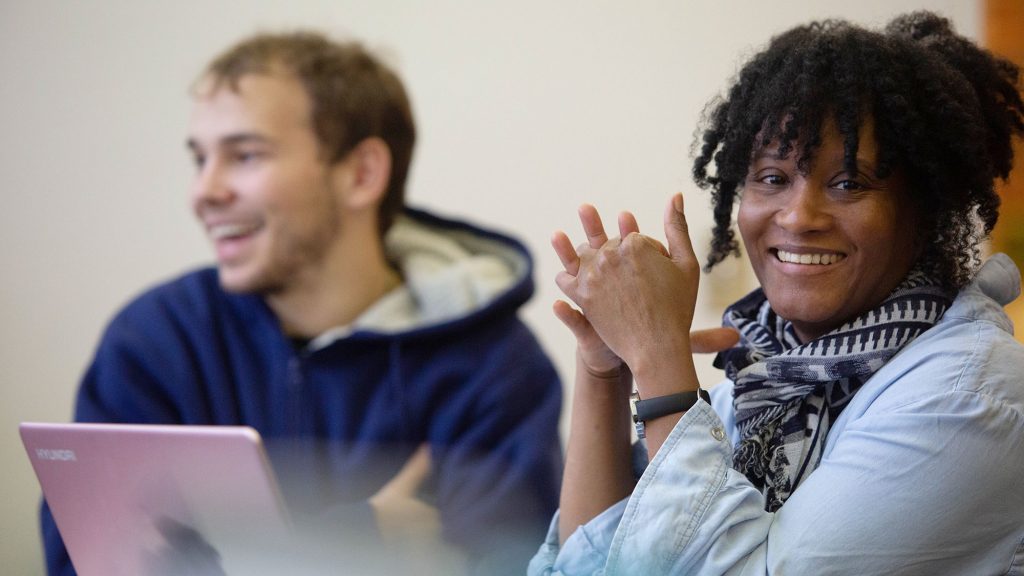
Credits required:
60 credits
Cost per credit:
$1,046/credit
Time to degree:
2.5 – 3.5 years
Delivery:
On campus
Mental health counseling degree curriculum
The 60-credit M.S. degree in Professional Counseling consists of 51 credits of core courses, 9 credits of electives geared towards your professional interests, and 700+ clinical hours in counseling. You will tailor your degree by choosing a clinical mental health concentration:
Adult Counseling Concentration
The Adult concentration enhances counseling skills and knowledge needed to support adults in various stages of life while gaining insights into the unique psychological, emotional, and developmental needs of adults and older adults.
PRC 718 – Advanced Counseling Skills
PRC 732 – Human Sexuality
Elective in Counseling, psychology, or social work
Child & Adolescent Counseling Concentration:
The Child and Adolescent concentration is designed for students who wish to work with children and adolescents in a variety of settings: community mental health agencies, school-based mental health counseling, family-based counseling, residential treatment centers, integrative pediatric care, and outpatient counseling. Students will specialize in child-based interventions and get an advanced understanding of assessment and play therapy. Students will also develop an advanced understanding of systemic advocacy and parent consultation to support the development of children and adolescents in their natural environments.
PRC725 – Interventions with Children
PRC749 – Play Therapy
PYM750 – Clinical Assessment of Children and Adolescents or ED 766 Children and the Media
Or School-Based Mental Health Concentration (graduates with 63 credits)
PRC 725 Interventions with Children
PRC 749 Play Therapy
PYM 750 Clinical Assessment of Children and Adolescents or ED 766 Children and the Media
PRC 751 School-Based Mental Health Counseling Field Experience
*Scholarships are available for the School-Based Mental Health Concentration.
Clinical Evaluation Concentration
The Clinical Evaluation concentration offers an opportunity to develop skills in assessing and diagnosing mental health disorders, conducting comprehensive assessments, interpreting diagnostic criteria, and formulating evidence-based treatment plans, providing essential support to individuals seeking mental health treatment.
PYM740 – Trauma Assessment & Intervention
PYM750 – Clinical Assessment of Children
Elective in Counseling, psychology, or social work
Corrections Counseling Concentration
The Corrections concentration involves understanding the complexities of the correctional environment, including the unique psychological and behavioral needs of incarcerated and formerly incarcerated individuals. This concentration focuses on gaining foundational training and skills to work with individuals in the criminal justice system while promoting positive change and reducing recidivism rates.
PYM720 – Foundations of Forensic Psychology or PYM723 – Poverty, Race, Gender in Criminal Justice
PYM721 – Systems of Crime and Justice
PYM722 – Psychology of Deviance
Trauma-Informed Counseling Concentration
The Trauma-Informed concentration involves gaining an awareness of the pervasive impact of trauma on life experiences and relationships in addition to recognizing trauma’s role in the thoughts, feelings, and worldview of individuals who have experienced trauma.
PRC 718 – Advanced Counseling Skills
PRC 719 – Advanced Crisis Management
Trauma-specific elective in Counseling, psychology, or social work
Generalist Concentration
The Generalist concentration is designed as a comprehensive approach to counseling for individuals passionate about making a difference in diverse communities and prepares students for a wide range of professional opportunities. Students can learn more about these programs by speaking with their Faculty Advisor.
9-credits of electives
The child and adolescent concentration for the Clinical Mental Health Counseling degree includes three courses that address specific interventions, assessment and play therapy. If you choose to concentrate on those who have suffered chronic and/or acute trauma in their lives, you’ll receive training in crisis management, trauma assessment and interventions. You can choose the forensic concentration if you want to work in legal or correctional settings, studying the interaction of mental health with the justice system, the roles of practitioners in the legal system and the unique concerns of this population.
Courses Descriptions for the Professional Counseling Program
Quick facts
- 2024 PCA Outstanding Counselor Education Program
- Meet educational requirements for Pennsylvania licensure in professional counseling (LPC) and national counselor certification (NCC)
- Degree program centered around multicultural and social justice
- Scholarships and Graduate Assistantships Available

Clinical Fieldwork Experience
“Professional practice, which includes practicum and internship, provides for the application of theory and the development of counseling skills under supervision. These experiences will provide opportunities for students to counsel clients who represent the ethnic and demographic diversity of their community.” – 2016 CACREP Standards: Section 3
During the practicum and internship experience, you will learn and practice, under supervision, a wide array of duties and responsibilities of a professional counselor who is employed at the site placement. These experiences are developmental in nature, as you grow in your competence, skills, and progress from practicum to internship experiences. Over the course of the clinical fieldwork experiences, you will complete a minimum of 700 clinical hours.
Accelerated Masters of Professional Counseling Program
Accelerated
Fast track your way into this master’s program by taking graduate courses as a Carlow undergraduate student. Course credits count toward both degrees. If you are interested in becoming a professional counselor and you are currently a junior or senior, with a minimum of a 3.0 GPA, consider applying for the Accelerated Masters of Professional Counseling Program. You will be able to take up to four (4) graduate level courses which are held on-campus.
Graduate Courses
PRC 708 Ethics and Professional Orientation
PRC 701 Human Growth and Lifespan Development
PRC 702 Social and Cultural Foundations
PRC 710 Counseling Theories
Accelerated Program – Undergraduate Prerequisite Courses
1) PY 122 Lifespan
2) PY 203 Personality Theory
3) PY 285 Intro to Counseling
4) Any additional 3 credits UG Psychology Course(s)
Contact your Carlow Faculty Advisor for details.
Career opportunities for mental health counseling degree
You can work in schools, hospitals, correctional facilities, community mental health agencies and private practice. Employment of mental health and substance abuse counselors is projected to grow 25% from 2019 to 2029, according to the U.S. Bureau of Labor Statistics.
▸ View the Professional Licensure Disclosure for this program.
Accreditation

The Council for Accreditation of Counseling and Related Educational Programs (CACREP), a specialized accrediting body recognized by the Council for Higher Education Accreditation (CHEA), has granted accreditation to the following programs in the Department of Psychology, Counseling, and Criminology at Carlow University: Addictions Counseling and Clinical Mental Health Counseling through 2029.
The Professional Counseling Program emphasizes high standards of professional competence. The program is committed to its stated mission through ongoing accreditations by the Middle States Commission on Higher Education and the Council for Accreditation of Counseling and Related Educational Programs (CACREP). We emphasize ethical practice and keep current with state and national standards for certification and licensure for practice in clinical practice environments. In addition, we engage in ongoing program development and refinement based on accrediting bodies’ and licensure boards’ developments and recommendations, as well as sensitivity to licensure requirements, and legal and ethical issues.
Additional program information:
- Learn about the program (program description, annual report, mission statements and program objectives)
- Graduate statistics (NCE pass rates, completion rates and job placement rates)
Admission requirements and application process
Sign up for Professional Counseling Recruitment Events
If you are interested in pursuing a career in Professional Counseling by providing individual and group counseling, you can apply for free online. The graduate program admissions process happens on a rolling basis. Our students have undergraduate degrees in a wide array of disciplines from psychology, human services, social work, or other related majors to majors outside of the helping professions.
Apply by
November 1 or April 1
Start terms:
Fall & Spring
Requirements
- Baccalaureate degree from an accredited institution
- Cumulative GPA of 3.0 or higher. A GPA below 3.0 may be reviewed on a case-by-case basis if there is relevant evidence of work history in the helping field, and/or strong grades in upper-level courses (psychology, human services, social work, or other related majors).
- Evidence of work and/or volunteer experience in a helping field
- Evidence of graduate level writing skills necessary for success in a graduate program
- Ability to perform all the program’s essential standards required to practice as a professional counselor
- Ability to demonstrate professional dispositions and behaviors
Process
- Official transcripts from all degree-granting institutions you have attended. Transcripts must be sent directly to the Carlow from the institution(s).
- A written professional essay describing your professional career goals, strengths, and skills that will contribute to your success in a graduate counseling program. Additionally, discuss how you incorporate social justice and diversity in your work. If your GPAs is below 3.0, also include the factors that impacted your GPA. The essay must demonstrate evidence of graduate level writing skills. (2-page limit).
- Current resume or curriculum vitae highlighting education and professional experiences in counseling and/or related field.
- Two letters of recommendation (one from faculty member/academic source & one from employer/volunteer supervisor) that address your professional accomplishments, leadership potential, and ability to succeed in graduate-level work. The references should not be related to the applicant.
- GRE/GMAT scores are not required for admission
Transfer students can transfer up to 9 credits earned at a CACREP-accredited program. International students can find more information on our International Admissions page.
The Professional Counseling Program’s application deadline for Fall semester is April 1st and November 1st for the Spring semester. We will continue to accept applications for review beyond those deadlines; however, preference will be given to those that applied by the designed deadlines. The preferred deadline for full consideration of graduate assistantship opportunities is February 1st.
Once your completed application is received, the program faculty will review your application materials and the selected applicants will be scheduled for an interview. Incomplete applications will not be reviewed. Admission decisions include regular, provisional, and conditional admission to the program.
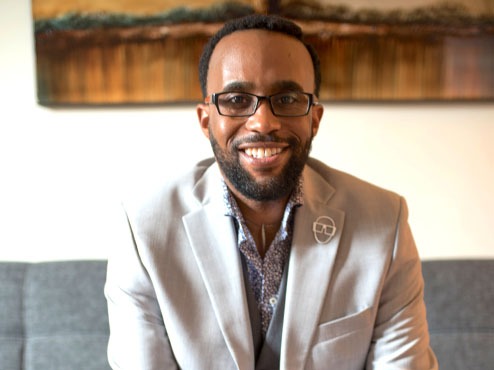
Committed to diversity and inclusion
Neal Holmes ’18 said his time at Carlow was a great academic experience that transformed his work and how he sees the world as a human being. “I felt welcomed by the staff and students, and I could feel that there was a strong commitment to diversity and inclusion work in the graduate counseling program. I appreciate the university’s commitment to social justice which is so parallel to my work in the counseling field today.”
Professional Counseling faculty

Frank Ammer, PhD Chair, Professor, Biology

Stephen Borecky, PhD Professor, Biology
Contact Admissions
If you are interested in this graduate program, our Admissions team is available to help you with the next steps, including scheduling an on-campus visit or attending an upcoming event.
Elevate your clinical experience. Become a physician assistant.
Carlow University offers a new and innovative cohort-based physician assistant program. Accelerate your learning with this 25-month program designed to build upon your prior healthcare experience and the clinical skills you already have. There’s nothing like being in a holistic and supportive academic environment that provides personalized attention in the classroom and lab. Our program ensures that clinical application is a big part of your transformational educational experience. It consists of a three-phase curriculum, grounded in Carlow’s mercy values, taught in a multidisciplinary environment alongside other healthcare professionals. This environment equips students with integral skills including ethical leadership, compassionate care and interprofessional collaborative competencies.
Upon graduation, students are prepared to take the Physician Assistant National Certification Examination (PANCE) and pursue a versatile and in-demand career as a physician assistant.
Admission requirements and application process
Start your application today! To get started, view or download our admissions policy for detailed admission requirements and application process (not all documents are necessary to start your application).
If you have any questions throughout the process or need guidance, our PA enrollment counselor, Kate Throckmorton, is here to help. You can reach her by email: kjthrockmorton@carlow.edu.
Final Deadline
Apr. 1
Priority Deadline
Oct. 1

Credits required:
102 credits
Cost per credit:
$1,007/credit
Time to degree:
6 semesters
Delivery:
On campus
Physician Assistant academic curriculum
Students progress through the physician assistant curriculum as members of a cohort in three phases: didactic, clinical experience and transition to practice. Interprofessional collaboration, a founding concept of the physician assistant profession, is at the core of each phase; providing students the opportunity to learn collectively with multiple healthcare disciplines. This collaborative education experience encourages meaningful alliances and ultimately prepares students to practice high-quality clinical care as a member of a healthcare team.
Learn in our simulated hospital environment
The Celtic Simulation Center for Innovative Learning (CSCIL) is a simulated hospital environment designed for student experiential learning. Primarily during the didactic phase, physician assistant students, alongside other healthcare disciplines, experience predetermined scenarios to practice clinical decision-making, diagnosis, procedures, and patient communication and interaction in a safe and realistic environment.
Curricular phases
- Phase 1: Didactic: An intense period of instruction meant to impart clinical knowledge, skills and attitudes in preparation for clinical practice
- Phase 2: Clinical experience: An experiential phase of education whose purpose is to apply the knowledge, skills and attitudes needed for patient care in a supervised environment, includes:
- 8 clinical rotations in areas including family medicine, internal medicine, emergency medicine, surgery, behavioral medicine, women’s health, pediatrics and one additional rotation
- 5 weeks, full-time (average of 40 hours per week)
- Sites are practices and healthcare systems located in southwestern Pennsylvania, including Pittsburgh, as well as across the country
- Phase 3: Transition to practice: The final period of the formal education program intended to prepare graduates for successful entrance into the profession and clinical practice
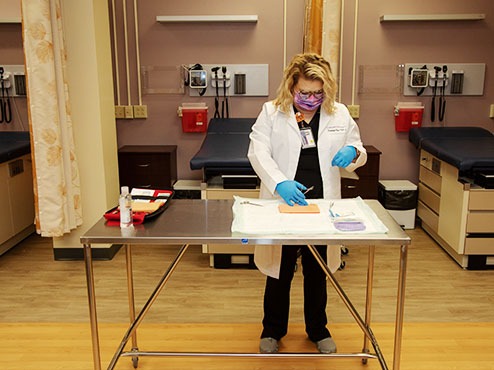
Rotation disciplines
- Family medicine
- Internal medicine
- Emergency medicine
- Surgery
- Behavioral medicine
- Women’s health
- Pediatrics
- One additional rotation
What is a Physician Assistant?
“Physician assistants (PAs) are medical professionals who diagnose illness, develop and manage treatment plans, prescribe medications and often serve as the patient’s principal healthcare provider. With thousands of hours of medical training, PAs are versatile and collaborative. PAs practice in every state and in every medical setting and specialty, improving health care access and quality.” American Academy of Physician Assistants (AAPA)
Additional resources can be found on the AAPA website including the history of the profession, scope of practice and ethical conduct.
Positive job outlook & lucrative salary
A career as a Physician Assistant provides one of the most versatile and flexible opportunities in healthcare, with the ability to work in any medical or surgical specialty or sub-specialty. According to the U.S. Bureau of Labor Statistics, PA jobs are projected to rise 30% through 2028 with a median pay of $112,260.
A number of state and national organizations provide PAs with advocacy, education, and support including:
Physician Assistant faculty and staff

Blythe Westendorf, OTD, MS, OTR/L Assistant Professor

Alyssa Kuster, OTD, OTR/L Field Coordinator/Assistant Professor

Ashlyn Geubtner Walter, OTD, OTR/L, CPAM Assistant Professor

Emily Santini, OTD, OTR/L, ATP Assistant Professor
Program information, outcomes & policies
View or download the following files:
Required program policies for applicants:
View or download the following policies:
Contact Admissions
If you are interested in this graduate program, our Admissions team is available to assist you with the next steps, including scheduling an on-campus visit.

ARC-PA accreditation status
At its September 2024 meeting, the Accreditation Review Commission on Education for the Physician Assistant, Inc. (ARC-PA) placed the Carlow University Physician Assistant Program sponsored by Carlow University on Accreditation-Probation status until its next review in September 2026.
Probation accreditation is a temporary accreditation status initially of not less than two years. However, that period may be extended by the ARC-PA for up to an additional two years if the ARC-PA finds that the program is making substantial progress toward meeting all applicable standards but requires additional time to come into full compliance. Probation accreditation status is granted, at the sole discretion of the ARC- PA, when a program holding an accreditation status of Accreditation – Provisional or Accreditation – Continued does not, in the judgment of the ARC-PA, meet the Standards or when the capability of the program to provide an acceptable educational experience for its students is threatened.
Once placed on probation, a program that fails to comply with accreditation requirements in a timely manner, as specified by the ARC-PA, may be scheduled for a focused site visit and is subject to having its accreditation withdrawn.
Specific questions regarding the Program and its plans should be directed to the Program Director and/or the appropriate institutional official(s).
The program’s accreditation history can be viewed on the ARC-PA’s website at https://www.arc-pa.org/accreditation-history-carlow-university/.
The College of Health and Wellness and Carlow University fully support the Physician Assistant Program and are actively addressing the concerns raised by the Accreditation Review Commission on Education for the Physician Assistant (ARC-PA). We remain committed to student success and delivering a high-quality program.
Speech-Language Pathology, Master of Science
Carlow’s unique interprofessional curricular design will provide you with the knowledge and skills you need to enter into professional practice as a licensed, certified speech-language pathologist working in any clinical environment.
What makes Carlow’s program different?
Carlow’s Master of Science in Speech-Language Pathology is committed to interprofessional collaborative education and was inspired by the view that effective team collaborations improve the quality of clinical service delivery.
Students will train to prevent, assess, and treat communication and swallowing disorders within a learning environment comprised of faculty, clinical educators, and students from several different professions including:
- Physical therapy
- Occupational therapy
- Education
- Nursing
- Physician Assistant
- Respiratory care therapy
Students will learn the value of interprofessional collaborative practice in leading high-quality, evidence-based, person-centered care across a variety of communication and swallowing disorders.
Credits required:
60 credits
Cost per credit:
$998*/credit
Time to degree:
5 semesters
Delivery:
On campus
*Additional University Fees as well as software and textbook costs are not included in the 2025-2026 scheduled credit cost and fees
Voice & Aerodigestive Disorders Specialization
The new specialization track within the Master’s in SLP program at Carlow University offers advanced training in voice, head and neck cancer, breathing disorders, and swallowing assessment (FEES). This pathway is designed for students pursuing medical SLP careers and seeking a competitive edge for externships and clinical fellowships.
For more information, contact Jackie Gartner-Schmidt at Carlow University at jlgartner-schmidt@carlow.edu.
How will I gain clinical skills?
Carlow’s program is different from other graduate programs in speech-language pathology because of its focus on the development of clinical skills. Beginning in your first semester, each of your core courses will be accompanied by a dedicated skills laboratory to ensure you are able to translate theoretical knowledge learned in the classroom into hands-on practical clinical skills under the mentorship of program faculty. In addition, you will advance your clinical skills through a variety of learning platforms including:
- Safe and supportive lifelike simulated case scenarios
- Access to both on-campus clinic and school-based settings
- Local and out-of-state outpatient, healthcare, and school-based externship settings
Students will use various labs and campus facilities including:
- Celtic Simulation Center for Innovative Learning (CSCIL)
- On-campus SLP Clinic
- Campus Laboratory School
- Early Learning Center
- Anatomy & Physiology Laboratory
What is the Carlow experience?
Carlow places high value on a teaching-learning climate of compassion, mutual respect, professionalism, and ethical accountability as these elements are fundamental to cultivating a higher level of professional practice. The program is dedicated to providing transformational educational experiences through innovation, close faculty mentorship, diverse learning experiences, and interprofessional collaborations.
Career Opportunity for Speech-Language Pathologists
According to the U.S. Bureau of Labor Statistics, the employment rate for speech-language pathologists, a job that often requires a master’s degree, is expected to grow 29% over the next 10 years, largely driven by the medical needs of an aging population.
Admission Requirements and Application Process
As of July 15, 2025, Carlow University is accepting applications for review for Fall 2026 matriculation. All applications should be submitted and verified on or before February 1, 2026 through CSDCAS, a centralized application service endorsed by the Council of Academic Programs in Communication Science and Disorders (CAPCSD). No additional application materials should be sent to the program.
Apply by:
Priority deadline: Feb. 1
Start term:
Fall semester
Graduate Education Funding Opportunities
Department of Speech-Language Pathology
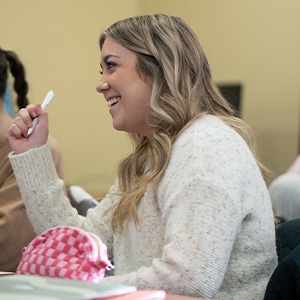
Application Open: March 15
Applications Closes: May 1
Interview Invitations: May 1-May 14
Decisions: May 15
Amount: $10,000 tuition remission
- Two (2) graduate assistantships are offered through the Department of Speech-Language Pathology.
- Each graduate assistantship is for a 1-year appointment (Fall and Spring semesters).
- Students are required to work 5 hours per week for 16 weeks in the Fall semester and 16 weeks in the Spring semester.
- Each assistantship provides $10,000 tuition remission for the appointed year.
- Any student accepted into the Carlow M.S. in Speech-Language Pathology Program may apply for one of the assistantships.
- The primary activities for this position are to support faculty members with research activities, provide general support and assistance with administrative type work, and perform duties for special projects and initiatives.
Sister Rita Alice Fitzgerald, RSM PhD Speech-Language Pathology Scholarship
The Sister Rita Alice Fitzgerald, RSM PhD Speech-Language Pathology Scholarship Fund was created in 2023 in honor of Sister Rita Alice Fitzgerald, RSM PhD and her rich legacy at Carlow University. As a Sister of Mercy, Sister Rita Alice Fitzgerald joined the Carlow community in 1956. In 1964, she was appointed to be the first Chairperson of Carlow’s Department of Speech Pathology and served until 1989. She had a remarkable career as a speech-language pathologist with numerous awards and honors including one of the highest professional honors, Fellow of the American Speech-Language-Hearing Association. She has been described as a person of integrity and honesty, who devoted herself to Carlow’s mission. She was an inspiration to all and a pioneer in providing transformational educational opportunities. Any student accepted into the Carlow M.S. in Speech-Language Pathology Program is eligible to apply for the scholarship.
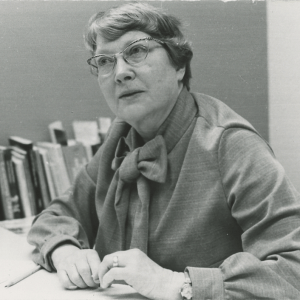
Application Open: March 1
Applications Closes: April 15
Decisions: May 1
Carlow University Endowed Scholarships
Carlow University offers a variety of endowed scholarships. These opportunities are available in late Spring and awarded in early summer. Watch your email for more information to come.
Carlow University-Wide Graduate Assistantships
Carlow University offers variable university-wide graduate assistantships. Students will be informed when these opportunities are available.
Other Scholarships and Awards Resources
- American Speech-Language Hearing Association: ASHA Award Programs for Students
- American Speech-Language Hearing Foundation (ASH Foundation): American Speech-Language-Hearing Foundation (ashfoundation.org)
- Council of Academic Programs in Communication Sciences and Disorders: Scholarships and Student Resources – Council of Academic Programs in Communication Sciences | CAPCSD
- Speech-Language Pathology Master’s Programs:Speech Pathology Scholarships for Graduate Students (speechpathologymastersprograms.com)
For more information regarding financial aid, please click here and/or contact your assigned financial aid advisor.

‘This Could Be It’: SLP Alum Paula Schultz on Finding Her Path at Carlow Carlow for unique program
After completing her undergraduate studies, Paula Schultz knew she wanted more than a typical graduate program. She was searching for a place where she could grow personally and professionally; somewhere that valued compassion and connection as much as technical expertise.
At Carlow, she found exactly that. According to Paula, the University’s deep-rooted values and supportive community created an environment where she felt seen and encouraged. Her time at Carlow gave her the confidence to embrace new challenges, the perspective to lead with empathy, and the preparation she needed to begin a meaningful career making a difference in the lives of others.
Speech-Language Pathology Faculty & Staff

Joseph Roberts, PhD Professor, Department Chair, Program Director of MA in Psychology and MS in Criminology & Criminal Justice

Alexa Piacquadio, PhD Assistant Professor of Undergraduate Psychology and Master of Arts in Psychology

Jonathan Uhl, PhD Assistant Professor of Criminology, Program Director of Undergraduate Criminology
Contact Admissions
If you are interested in this graduate program, our Admissions team is available to assist you with the next steps, including scheduling an on-campus visit or attending an enrollment event.
Follow us on social media
Follow us and stay up-to-date on events and opportunities to learn more about our program and faculty.
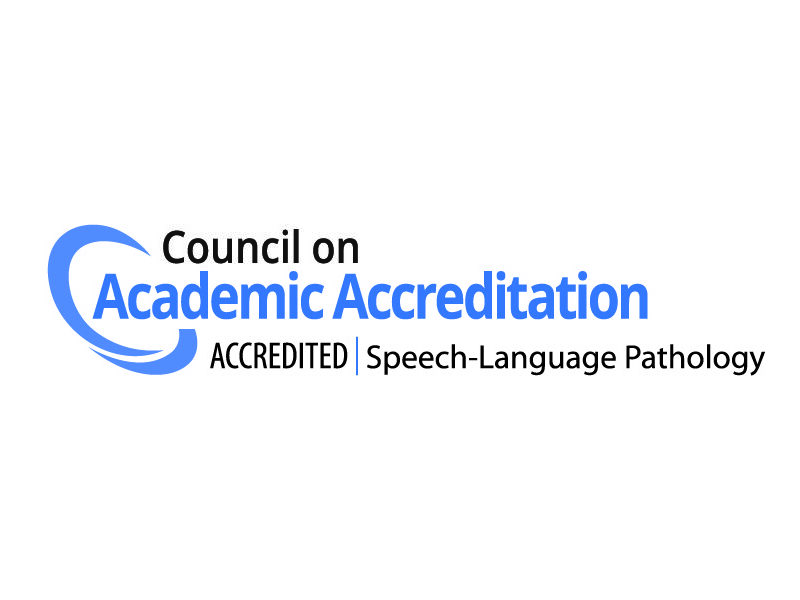
Accreditation
The Master of Science (M.S.) education program in speech-language pathology (residential) at Carlow University is accredited by the Council on Academic Accreditation in Audiology and Speech-Language Pathology of the American Speech-Language-Hearing Association, 2200 Research Boulevard, #310, Rockville, MD 20850, 800-498-2071 or 301-296-5700.





